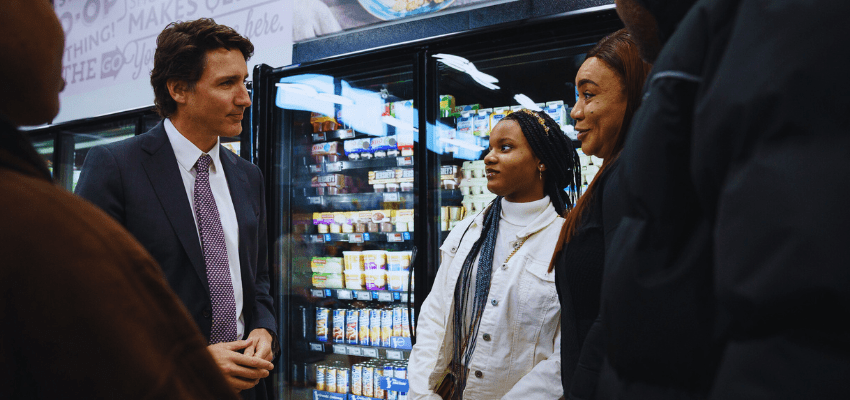This article originally appeared in the Globe and Mail.
By Tim Sargent, November 22, 2024
It seems that Christmas has come early for Canadians. The Prime Minister has just announced that for two months from Dec. 14 until Feb. 15, Canadians will not have to pay GST/HST on a variety of festive goods and services, such as prepared food, snacks, children’s toys and clothing, beer and wine (although not, oddly enough, eggnog), and Christmas trees. The Finance Department estimates that this will be worth $1.8-billion to Canadians.
To add to the festive cheer, the government will be sending (although not until early spring) a cheque for $250 to the 18.7 million Canadians who worked last year and earned less than $150,000, for a total cost of $4.7-billion. Here the government is following the lead of Ontario Premier Doug Ford, who plans to send provincial residents a cheque for $200 early next year.
As an economist, and thus a professional grinch, I do have to ask what the rationale is for all this largesse, and how it will be paid for. In the case of Mr. Ford, he is able to pay for his Christmas present to voters because provincial revenues were higher than expected. This seems reasonable: after all, the average Canadian family pays 45 per cent of its income on taxes and, so if governments find themselves with more than they expected, returning it to the pockets from whence it came is not unreasonable.
However, Prime Minister Justin Trudeau has made no mention of how his Christmas present will be financed, and it seems likely that instead it will be “paid for” by borrowing more money, meaning that the federal government’s deficit this year, estimated at $40-billion in April’s 2024 federal budget, will be higher to the tune of $6.3-billion. With 10-year bond rates around 3.4 per cent, that means that taxpayers will be paying more than $200-million in additional interest costs every year.
Is there perhaps a macroeconomic rationale? A one-time deficit-financed fiscal giveaway can make sense if demand is depressed, and if interest rates are so low that further cuts would have little effect. However, this is not at all the situation in Canada right now. With inflation now back to the 2-per-cent target, there is little excess capacity in the economy and, while the price of the carefully targeted festive products may go down, the increased purchasing power resulting from the government’s giveaway will put upward pressure on all prices in the economy.
What is particularly ill-advised about the direction the government is taking is that we have seen this particular Christmas movie before, on a much larger scale. Panicked by the global pandemic, the federal government, along with many others across the world, launched programs such as the Canadian Emergency Response Benefit, which funnelled more than $200-billion of borrowed money into an economy with severe supply shortages. The result was rapid inflation that required big increases in interest rates to overcome, and a massive increase in Canada’s national debt that will weigh on our public finances for decades to come.
So I am sorry to have to break it to the Prime Minister, but there is no fiscal Santa Claus that can bring Canadians presents that don’t have to be paid for through increased debt payments and higher prices. If he wants Canadians to have lower taxes for Christmas he will have to pay for it: the good news is that with the rapid growth of federal spending over the past nine years, he should find plenty of opportunities to make savings that would give Canadians a tax cut that the country can afford.
Tim Sargent is director of the domestic policy program at the Macdonald-Laurier Institute in Ottawa.






